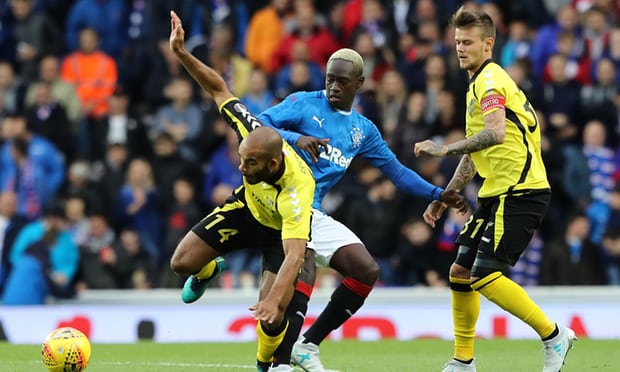London- It is not often the contents of Mladina magazine get picked up outside the leafy surrounds of Ljubljana but the former journal of the youth wing of the Yugoslavian Communist party is now the most respected political magazine in Slovenia. It is therefore a natural place for the Slovenian president of Uefa, Aleksander Ceferin, to give an interview and by talking about the prospect of a salary cap he made sure more people listened than just his fellow countrymen.
“In future, we will have to take into serious consideration the possibility of limiting clubs’ budgets for players’ wages,” Ceferin told Mladina. “The wealthiest clubs are only getting richer and the gap between them and the rest is getting bigger.”
As part of a more wide-ranging discussion about politics, elites and inequality, Ceferin was keen to point out that any such plans would meet resistance. “Those who have the most money are the strongest and have the best connections in the media,” he said. “If we succeed, it will, in my opinion, be a historic change.”
For many football supporters, the idea of a wage cap is a prize not unlike the holy grail; transformative but almost certainly impossible to obtain. A fixed amount of money to spend on players each year could ensure the financial security of football clubs and, more excitingly, create a prospect where every club had a realistic chance of becoming champions of their division.
Ceferin did not become Slovenia’s most celebrated sporting administrator without possessing political ability and he was right to hedge his remarks. Imposing a total salary cap on football, whether it be across Uefa competitions or European domestic leagues, would not be an easy sell. Not least because those clubs who are already successful and have a turnover substantial enough to pay for a squad better remunerated than their rivals would find it difficult to understand why they should give up that advantage.
But the truth is that greater financial regulation comes in many shapes and sizes. It already exists across most sports, including English football. Football League clubs are working under what might be described as a soft wage cap, the Salary Cost Management Protocol, whereby clubs in League One must spend no more than 60% of turnover on wages and clubs in League Two no more than 55%. At a higher level, Uefa’s own financial fair play system limits the amount of financial losses any club can accrue over a given period.
Both of the systems in English football directly address the first of the issues that might concern supporters listed above; namely, the financial security of clubs. Limiting losses and ensuring a sustainable level of spending is something with which most fans (though there will always be exceptions) can agree. But to the second point, that of creating a greater competitive balance within a league, these measures could be said to work actively against it; ensuring that rich clubs have an advantage locked in over poorer clubs.
According to one person who works in the field of financial regulation in football, Ceferin was talking to a particular audience. “Ceferin’s remarks are basically currying favour with people from smaller leagues,” he says. “Slovakia, Slovenia, Poland, Ireland, these leagues are his constituency.”
By mentioning a wage cap, Ceferin can show smaller countries he is aware of a structural imbalance but he is unlikely to be able to do anything about it. “It may be that Uefa are thinking of reforming FFP to make it stronger,” the expert says. “But if you take what he’s saying at face value, a hard cap with a few exceptions, practically speaking it wouldn’t be possible. It’s nonsense to imagine.”
While a hard wage cap, as enforced in the NFL, might address competitive balance (though at the same time often ensures clubs are unable to create a sustained period of success) it would be almost impossible to enforce in football. Regulation as applied by Uefa, for example, would not necessarily apply in domestic competitions. There would then be the issue of how to apply a wage cap across divisions while ensuring promotion and relegation continue. Low tax rates would become even more attractive for players and their agents (allowing Luxembourg to build on their recent footballing success against Rangers, perhaps, but proving a bane for other countries). And that is without even considering the legal wrangles that would have to be worked out via the European court of justice, which presides over FFP.
A hard wage cap remains as much of a mirage as it has always been and big clubs will continue to be big. However, according to one expert, we should be grateful for the small blessings, namely that FFP is doing the job it was supposed to do. “It might sound trite,” he says, “but a lot of the reason FFP gets criticised is because of its name. Fair play means competitive balance to most people and they assume it’s there to address that but actually it was brought in to stop clubs going bust and it’s been incredibly successful at that.”
The Guardian Sport
